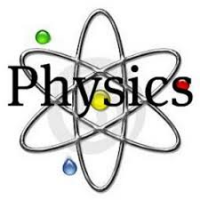Difference between revisions of "LGBTQ Physicists"
| Line 13: | Line 13: | ||
We have identified the following prominent LGBTQ physicists from around the world. Read their fascinating biographies by clicking on their names: | We have identified the following prominent LGBTQ physicists from around the world. Read their fascinating biographies by clicking on their names: | ||
| − | * [[ | + | '''Australia''' |
| − | * [[ | + | |
| − | * [[ | + | * [[Lisa Harvey-Smith]] |
| − | * [[ | + | * [[Rachael Padman]] |
| − | * [[Angela Clayton]] | + | |
| − | * [[ | + | '''Germany''' |
| − | * [[ | + | |
| − | * [[ | + | * [[Benedict Friedlander]] |
| − | * [[ | + | * [[Katrin Suder]] |
| − | * [[ | + | |
| − | * [[ | + | '''Great Britain''' |
| − | * [[ | + | |
| − | * [[ | + | * [[Tim Atherton]] |
| − | * [[ | + | * [[Angela Clayton]] |
| − | * [[ | + | * [[Kate Stone]] |
| − | * [[Monica Plisch]] | + | |
| − | * [[Michael Ramsey-Musolf]] | + | '''Pakistan''' |
| − | * [[Sally Ride]] | + | |
| − | * [[Jane Rigby]] | + | * [[Nergis Mavalvala]] |
| − | + | ||
| − | + | '''Spain''' | |
| − | * [[EJ Zita]] | + | |
| + | * [[Juani Bermejo-Vegas]] | ||
| + | |||
| + | '''United States'' | ||
| + | |||
| + | * [[Omer Blaes]] | ||
| + | * [[Steven Boggs]] | ||
| + | * [[Samuel Brinton]] | ||
| + | * [[Wouter Deconinck]] | ||
| + | * [[Michael Falk]] | ||
| + | * [[Kimberlee Kearfott]] | ||
| + | * [[Edward Kinney]] | ||
| + | * [[Stephen Lawrence]] | ||
| + | * [[Rebecca Oppenheimer]] | ||
| + | * [[Monica Plisch]] | ||
| + | * [[Michael Ramsey-Musolf]] | ||
| + | * [[Sally Ride]] | ||
| + | * [[Jane Rigby]] | ||
| + | * [[EJ Zita]] | ||
==See Also== | ==See Also== | ||
Revision as of 01:36, 29 January 2021
Physics is an extremely technical field of scientific study that requires an intense commitment of effort and focus together with a collection of advanced educational skills. It is a natural science that looks at the study of matter and how it evolves through space and time. The field encompasses several specific areas: astrophysics (the study of the nature of heavenly bodies); nuclear physics (the study of atomic nuclei); and biophysics (the study of biological systems using methods of physics).
To advance this intricate field of study requires the recruitment of the brightest and most creative minds. It is important, therefore, to see broad participation of the LGBTQ community in the profession. Notable among this community is the large number of lesbian scientists and academics, as well as the number of transgender individuals in the field. Many of these LGBTQ individuals have received significant awards and accolades for their work. For example, transgender scientist Angela Clayton was admitted as a Member of the Order of the British Empire (MBE), while transgender astrophysicist Rebecca Oppenheimer is Chair of the American Museum of Natural History's astrophysics department. Elizabeth H. Simmons (an ally member of LGBTQ+Physicists) has been appointed a University Distinguished Professor, the highest level of academic achievement. Perhaps the most well-known of all is Sally Ride, the first American female in space.
Most recently, lesbian physicist Nergis Mavalvala shot to global fame as a member of the group of scientists who proved Einstein's theory of the existence of gravitational waves when they were detected using the ultrasensitive telescope they created (2016). This is sure to inspire all LGBTQ individuals pursuing physics as their field of study.
There are several professional organizations for LGBTQ physicists. Notable among these are the National Organization of Gay and Lesbian Scientists and Technical Professionals (NOGLSTP), LGBT+Physicists, and Pride in STEM (see Further Research links below). These organizations strive to improve the working climate for their members through greater acceptance and support in their workplaces. In various surveys, LGBTQ physicists have noted that the biggest problem for them as a community is the lack of visibility of members along with allies in the profession.
Another organization, 500 Queer Scientists (500queerscientists.com), is an online database for the STEM community and which allows individuals to contribute their biography. Their goal is to ensure the next STEM generation has LGBTQ+ role models; help the current generation recognize they’re not alone; create opportunities for community connections and greater visibility within STEM.
We have identified the following prominent LGBTQ physicists from around the world. Read their fascinating biographies by clicking on their names:
Australia
Germany
Great Britain
Pakistan
Spain
'United States
- Omer Blaes
- Steven Boggs
- Samuel Brinton
- Wouter Deconinck
- Michael Falk
- Kimberlee Kearfott
- Edward Kinney
- Stephen Lawrence
- Rebecca Oppenheimer
- Monica Plisch
- Michael Ramsey-Musolf
- Sally Ride
- Jane Rigby
- EJ Zita
See Also
- The Fascinating World of LGBTQ Astronomers, Astrophysicists, and Cosmologists
- LGBTQ Biologists and Chemists
- LGBTQ Mathematicians
- LGBTQ Engineers
Further Reading/Research
- http://lgbtphysicists.org/about.html
- https://telescoper.wordpress.com/2013/09/13/where-are-all-the-lgbt-astrophysicists/
- https://www.aps.org/publications/apsnews/201305/lgbtinphysics.cfm
- http://arxiv.org/pdf/1206.4112%C3%A2%E2%82%AC%C5%BD
- https://prideinstem.org/about/
- https://www.500queerscientists.com/

